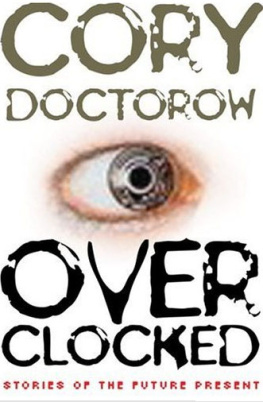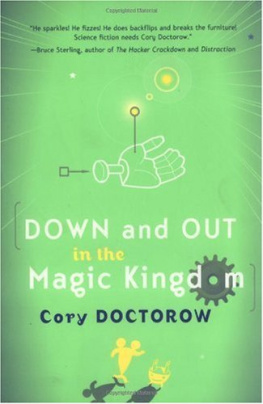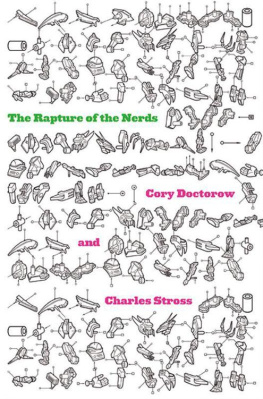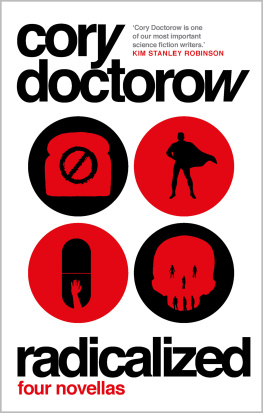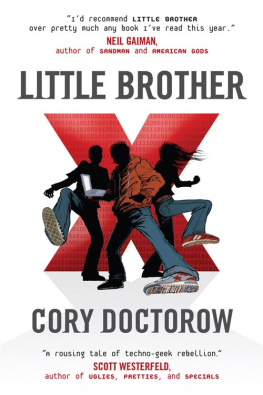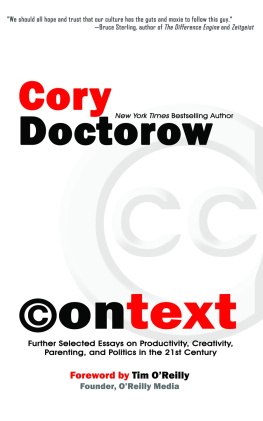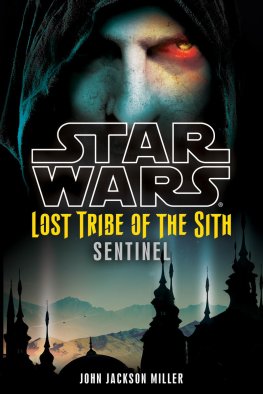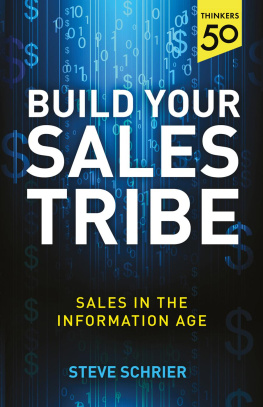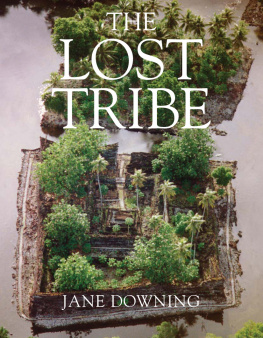Cory Doctorow
Eastern Standard Tribe
"Utterly contemporary and deeply peculiar-a hard combination to beat (or, these days, to find)."
William Gibson. Author of Neuromancer
"Cory Doctorow knocks me out. In a good way."
Pat Cadigan. Author of Synners
"Cory Doctorow is just far enough ahead of the game to give you that authentic chill of the future, and close enough to home for us to know that he's talking about where we live as well as where we're going to live; a connected world full of disconnected people. One of whom is about to lobotomise himself through the nostril with a pencil. Funny as hell and sharp as steel."
Warren Ellis. Author of Transmetropolitan
Last year, in January 2003, my first novel (http://craphound.com/down) came out. I was 31 years old, and I'd been calling myself a novelist since the age of 12. It was the storied dream-of-a-lifetime, come-true-at-last. I was and am proud as hell of that book, even though it is just one book among many released last year, better than some, poorer than others; and even though the print-run (which sold out very quickly!) though generous by science fiction standards, hardly qualifies it as a work of mass entertainment.
The thing that's extraordinary about that first novel is that it was released under terms governed by a Creative Commons (http://creativecommons.org/) license that allowed my readers to copy the book freely and distribute it far and wide. Hundreds of thousands of copies of the book were made and distributed this way. Hundreds of thousands.
Today, I release my second novel, and my third (http://www.argosymag.com/NextIssue.html), a collaboration with Charlie Stross is due any day, and two (http://www.fantasticmetropolis.com/show.html?fn.preview_doctorow) more (http://www.craphound.com/usrbingodexcerpt.txt) are under contract. My career as a novelist is now well underway-in other words, I am firmly afoot on a long road that stretches into the future: my future, science fiction's future, publishing's future and the future of the world.
The future is my business, more or less. I'm a science fiction writer. One way to know the future is to look good and hard at the present. Here's a thing I've noticed about the present: more people are reading more words off of more screens than ever before. Here's another thing I've noticed about the present: fewer people are reading fewer words off of fewer pages than ever before. That doesn't mean that the book is dyingno more than the advent of the printing press and the de-emphasis of Bible-copying monks meant that the book was dying-but it does mean that the book is changing. I think that literature is alive and well: we're reading our brains out! I just think that the complex social practice of "book"-of which a bunch of paper pages between two covers is the mere expression-is transforming and will transform further.
I intend on figuring out what it's transforming into. I intend on figuring out the way that some writers-that this writer, right here, wearing my underwear-is going to get rich and famous from his craft. I intend on figuring out how this writer's words can become part of the social discourse, can be relevant in the way that literature at its best can be.
I don't know what the future of book looks like. To figure it out, I'm doing some pretty basic science. I'm peering into this opaque, inscrutable system of publishing as it sits in the year 2004, and I'm making a perturbation. I'm stirring the pot to see what surfaces, so that I can see if the system reveals itself to me any more thoroughly as it roils. Once that happens, maybe I'll be able to formulate an hypothesis and try an experiment or two and maybe-just maybe-I'll get to the bottom of book-in-2004 and beat the competition to making it work, and maybe I'll go home with all (or most) of the marbles.
It's a long shot, but I'm a pretty sharp guy, and I know as much about this stuff as anyone out there. More to the point, trying stuff and doing research yields a non-zero chance of success. The alternatives-sitting pat, or worse, getting into a moral panic about "piracy" and accusing the readers who are blazing new trail of "the moral equivalent of shoplifting"-have a zero percent chance of success.
Most artists never "succeed" in the sense of attaining fame and modest fortune. A career in the arts is a risky long-shot kind of business. I'm doing what I can to sweeten my odds.
So here we are, and here is novel number two, a book called Eastern Standard Tribe, which you can walk into shops all over the world and buy as a physical artifact (http://craphound.com/est/buy.php)-a very nice physical artifact, designed by Chesley-award-winning art director Irene Gallo and her designer Shelley Eshkar, published by Tor Books, a huge, profit-making arm of an enormous, multinational publishing concern. Tor is watching what happens to this book nearly as keenly as I am, because we're all very interested in what the book is turning into.
To that end, here is the book as a non-physical artifact. A file. A bunch of text, slithery bits that can cross the world in an instant, using the Internet, a tool designed to copy things very quickly from one place to another; and using personal computers, tools designed to slice, dice and rearrange collections of bits. These tools demand that their users copy and slice and dice-rip, mix and burn!-and that's what I'm hoping you will do with this.
Not (just) because I'm a swell guy, a big-hearted slob. Not because Tor is run by addlepated dot-com refugees who have been sold some snake-oil about the e-book revolution. Because you-the readers, the slicers, dicers and copiers-hold in your collective action the secret of the future of publishing. Writers are a dime a dozen. Everybody's got a novel in her or him. Readers are a precious commodity. You've got all the money and all the attention and you run the word-of-mouth network that marks the difference between a little book, soon forgotten, and a book that becomes a lasting piece of posterity for its author, changing the world in some meaningful way.
I'm unashamedly exploiting your imagination. Imagine me a new practice of book, readers. Take this novel and pass it from inbox to inbox, through your IM clients, over P2P networks. Put it on webservers. Convert it to weird, obscure ebook formats. Show me-and my colleagues, and my publisher-what the future of book looks like.
I'll keep on writing them if you keep on reading them. But as cool and wonderful as writing is, it's not half so cool as inventing the future. Thanks for helping me do it.
Here's a summary of the license:
http://creativecommons.org/licenses/by-nd-nc/1.0
Attribution. The licensor permits others to copy, distribute, display, and perform the work. In return, licensees must give the original author credit.
No Derivative Works. The licensor permits others to copy, distribute, display and perform only unaltered copies of the work-not derivative works based on it.
Noncommercial. The licensor permits others to copy, distribute, display, and perform the work. In return, licensees may not use the work for commercial purposes-unless they get the licensor's permission.
And here's the license itself:
http://creativecommons.org/licenses/by-nd-nc/1.0-legalcode
THE WORK (AS DEFINED BELOW) IS PROVIDED UNDER THE TERMS OF THIS CREATIVE COMMONS PUBLIC LICENSE ("CCPL" OR "LICENSE"). THE WORK IS PROTECTED BY COPYRIGHT AND/OR OTHER APPLICABLE LAW. ANY USE OF THE WORK OTHER THAN AS AUTHORIZED UNDER THIS LICENSE IS PROHIBITED.
BY EXERCISING ANY RIGHTS TO THE WORK PROVIDED HERE, YOU ACCEPT AND AGREE TO BE BOUND BY THE TERMS OF THIS LICENSE. THE LICENSOR GRANTS YOU THE RIGHTS CONTAINED HERE IN CONSIDERATION OF YOUR ACCEPTANCE OF SUCH TERMS AND CONDITIONS.


